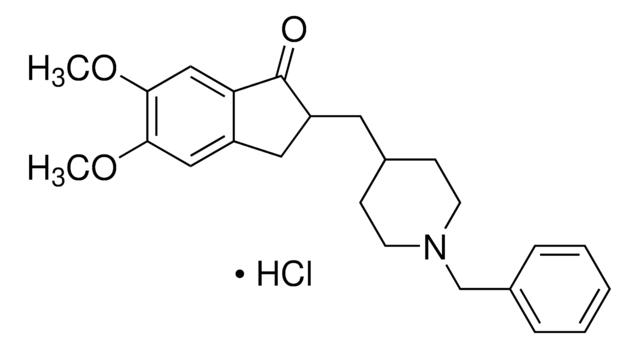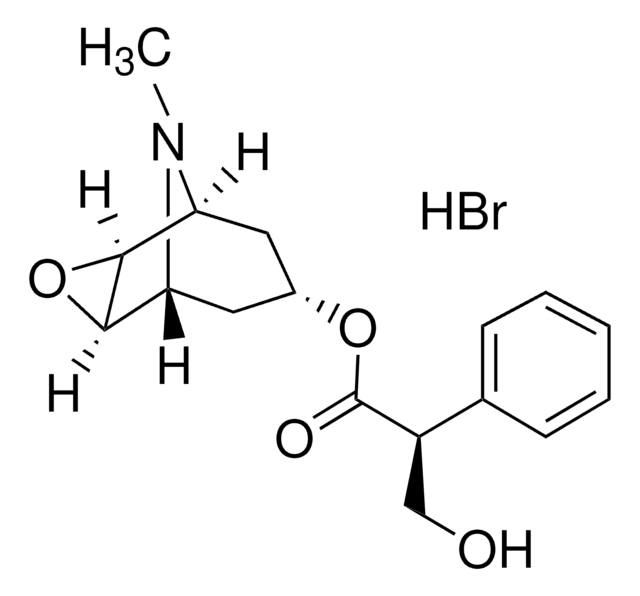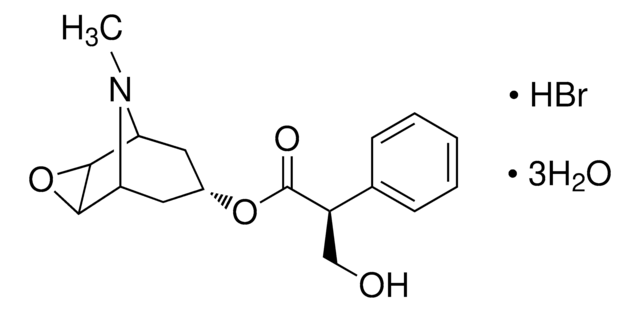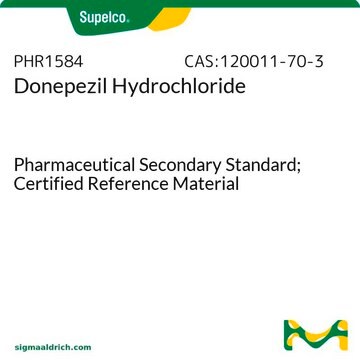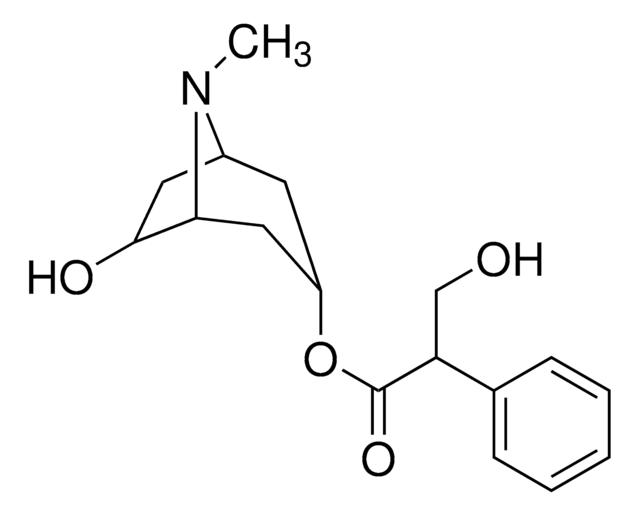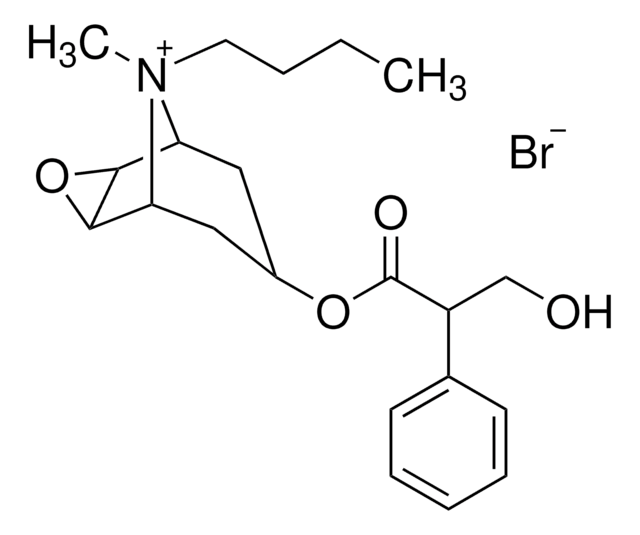S0929
Scopolamine hydrobromide
meets USP testing specifications
Synonym(s):
(−)-Scopolamine hydrobromide trihydrate, Hyoscine hydrobromide, Scopine tropate
About This Item
Recommended Products
agency
USP/NF
meets USP testing specifications
Quality Level
mp
195-199 °C (dry matter) (lit.)
application(s)
pharmaceutical (small molecule)
SMILES string
O.O.O.Br.CN1[C@@H]2C[C@H](C[C@H]1[C@@H]3O[C@H]23)OC(=O)[C@H](CO)c4ccccc4
InChI
1S/C17H21NO4.BrH.3H2O/c1-18-13-7-11(8-14(18)16-15(13)22-16)21-17(20)12(9-19)10-5-3-2-4-6-10;;;;/h2-6,11-16,19H,7-9H2,1H3;1H;3*1H2/t11-,12-,13-,14+,15-,16+;;;;/m1..../s1
InChI key
LACQPOBCQQPVIT-SEYKEWMNSA-N
Gene Information
human ... CHRM1(1128)
Looking for similar products? Visit Product Comparison Guide
Application
- to reverse the cardiac effects of physostigmine in rabbit heart
- to study its effect on acoustic startle reflex (gap-PPI){148)
- to study it′s in vitro antiviral, antibacterial, and antifungal activities and cytotoxicity
- to study its effect on conditioning of lever pressing
Biochem/physiol Actions
signalword
Danger
hcodes
Hazard Classifications
Acute Tox. 1 Dermal - Acute Tox. 2 Inhalation - Acute Tox. 2 Oral
Storage Class
6.1A - Combustible acute toxic Cat. 1 and 2 / very toxic hazardous materials
wgk_germany
WGK 1
flash_point_f
Not applicable
flash_point_c
Not applicable
ppe
Eyeshields, Faceshields, Gloves, type P3 (EN 143) respirator cartridges
Choose from one of the most recent versions:
Already Own This Product?
Find documentation for the products that you have recently purchased in the Document Library.
Customers Also Viewed
Our team of scientists has experience in all areas of research including Life Science, Material Science, Chemical Synthesis, Chromatography, Analytical and many others.
Contact Technical Service